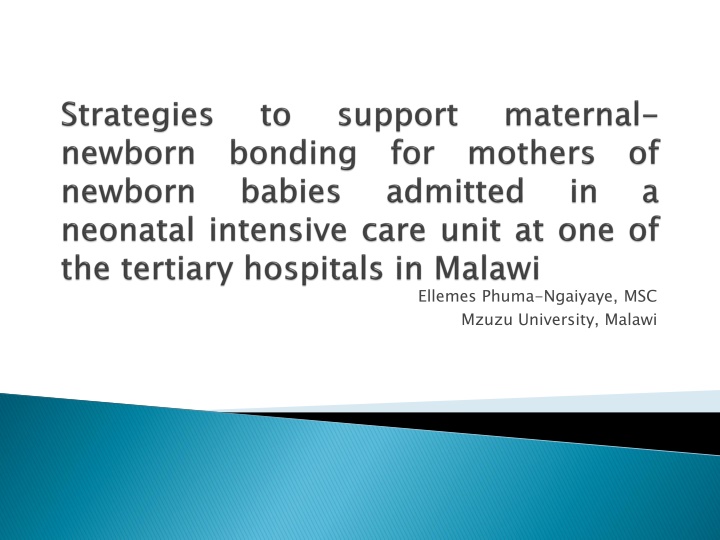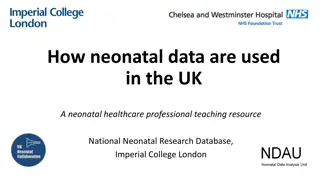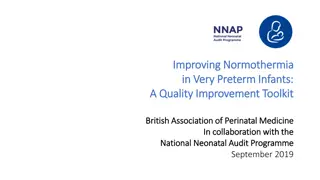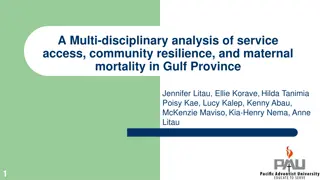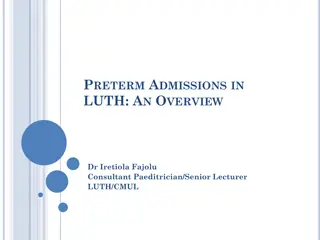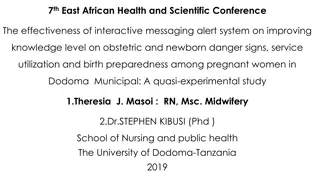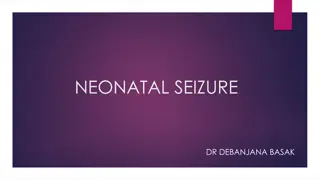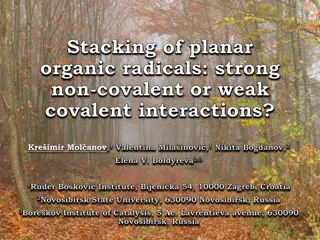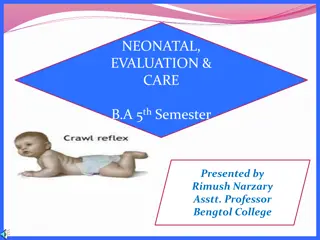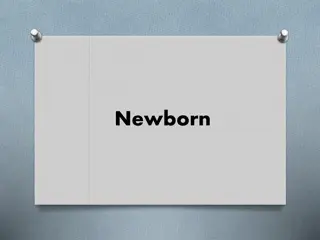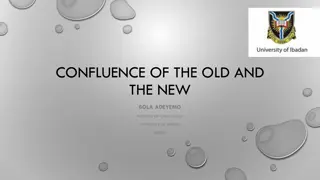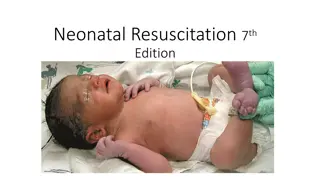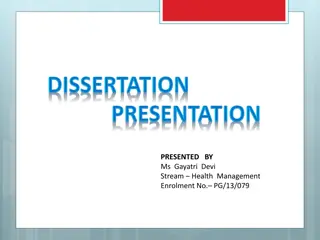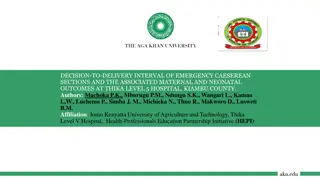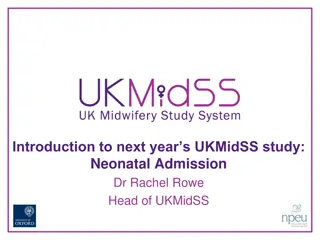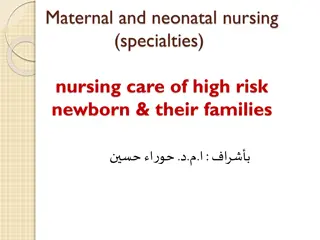Role of Nurses in Maternal-Newborn Bonding in Neonatal Care
The importance of maternal-newborn bonding in neonatal care settings is explored, focusing on the challenges faced and strategies used by nurses and midwives to support this bond. The study conducted in Malawi highlights the significance of caregiver interactions in promoting maternal-newborn attachment, despite constraints in neonatal intensive care units. Ethical considerations, research methodology, and key findings regarding bonding strategies are discussed.
Download Presentation

Please find below an Image/Link to download the presentation.
The content on the website is provided AS IS for your information and personal use only. It may not be sold, licensed, or shared on other websites without obtaining consent from the author.If you encounter any issues during the download, it is possible that the publisher has removed the file from their server.
You are allowed to download the files provided on this website for personal or commercial use, subject to the condition that they are used lawfully. All files are the property of their respective owners.
The content on the website is provided AS IS for your information and personal use only. It may not be sold, licensed, or shared on other websites without obtaining consent from the author.
E N D
Presentation Transcript
Ellemes Phuma-Ngaiyaye, MSC Mzuzu University, Malawi
Bonding developmental (Feldman, Weller, Leckman, Kuint, & Edelman, 1999). To enhance maternal-newborn attachment infants need to be close to their mothers to cue their needs and mothers need to be close to respond to them (Karl et al., 2006). is considered force the the central lifespan across
Illness and hospitalization of a newborn baby may interfere with the natural maternal- infant bonding and attachment process Mothers struggle in getting connected with their newborn babies due to restrictions in the neonatal intensive care units
Studies show that nurses play an important role bonding while the neonatal intensive care unit (Kearvell & Grant, 2010; Obeidat et al., 2009). in supporting providing specialised care in maternal-newborn
To explore the strategies used by nurses and midwives bonding and attachment for mothers with neonates admitted in a neonatal intensive care unit to support maternal-newborn
The hospital in the Eastern part of Malawi Qualitative-in-depth observations 15 participants were included-10 caregivers and 5 nurses and midwives Data was transcribed verbatim and content analysis used to identify themes and patterns in the text study was conducted at a tertiary interviews and
The study met all the ethics requirements Participants gave both verbal and written consent Integrity, observed throughout the process privacy and confidentiality was
Results strategies bonding Two themes Maternal-newborn interaction Maternal-nurse/midwife interaction revealed to that nurses maternal-newborn use several support
Nurses approaches to promote maternal-newborn bonding Breastfeeding-promoted together when the neonate is admitted in this unit usually we encourage breastfeeding feeding important for attachment as well (Nurse-Midwife) and midwives use different a feeling of being the mother to be babies, coming for is their it
Caregiver participation in newborns routine care Mothers involved in newborn care i.e. feeding, touching, changing nappies they assist us, they also involve us like feeding the baby, nappies. communicate with the baby playing with the baby (Mother) we do it nurses ourselves sometimes also changing us The encourage to
Kangaroo mother care Mothers with premature babies encouraged to do KMC-to promote skin-to-skin contact-reciprocal pleasure
The relationship between the mother and nurse was viewed as important in supporting a mother to establish a connection with her infant Friendly and sensitive nurses were viewed as being supportive to the mothers guided and strengthened maternal responses to their infants
Mothers connection with their newborn babies when they were assisted by the nurses The psychosocial support to the mothers Guidance, emotional support, encouragement and education-maternal confidence reported developing a positive nurses and midwives provided
Continuous communication with mothers Mothers reported that nurses who continuously communicated attachment i.e. There was reduced anxiety among mothers Mothers understood the health status of their newborn babies Mothers developed confidence in the care provided to the newborn babies with caregivers enhanced
Nurses and midwives who encourage mother- newborn interaction through breastfeeding, maternal participation in newborn care, KMC, in through communication maternal-newborn bonding addition maternal-nurse psychosocial are to interaction support to and key promoting
Nurses need to be active in initiating these strategies bonding and attachment Nurses need adequate support and clear guidelines for effective support to mothers with newborn babies in the intensive neonatal care units. to facilitate maternal-newborn
Obeidat, H.M., Bond, E.A. & Callister, L. C. (2009). The Parental Experience of Having an Infant in the Newborn Intensive Care Unit. Journal Perinatal Education. 18; 23 29. doi: 10.1624/105812409X461199
Kearvell, connected: mother/infant attachment in the neonatal intensive Advanced Nursing, Vol. 27; 75-82. H. & How Grant, J. (2010). can Getting support nurses care unit. Australian Journal of
